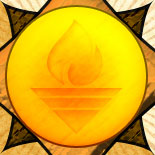|
History Day 2010 is sure to be a fantastic event with its stimulating
theme and ever-growing participation and enthusiasm. Before
you get involved, get the details of this year's theme - "Innovation
in History" - and specifics of the
event below.

Pinellas
County History Day Wants YOU!

To join us in an exciting, educational,
community event!
March 10, 2012
USF St. Pete
Time: 8:30-4:30


National History Day 2012 Theme:
REVOLUTION, REACTION, REFORM IN HISTORY
Welcome to National History Day! You are
about to become a better student! It doesn’t matter if you
are planning on becoming a doctor, a historian, a marine
biologist, or a teacher: whatever your career path, National
History Day will help. Besides being a fun experience, NHD
will improve your reading and writing skills and help you
become a better researcher, all while you are learning about
a topic of your choice!
During the 2011-2012 school year National
History Day invites students to research topics related to
the theme, "Revolution, Reaction, Reform in History." The
theme is broad enough for you to select a local, state,
national or world history topic. To understand the
historical importance of your topics, you must ask questions
of time and place, cause and effect, change over time,
impact and significance. You must ask questions about why
events happened and what impact the events had? What factors
contributed to a revolution? Why was there a need to reform
at the particular time? Why did this event cause a reaction?
Regardless of the topic selected, you must do more than
describe what happened. You must draw conclusions, basing
your opinion on evidence, about how the topic affected
individuals, communities, nations and the world. Studies
should include an investigation into available primary and
secondary sources, analysis of the evidence, and a clear
explanation of the relationship of the topic to the theme.
As you investigate this year’s theme
think of the theme in broad terms, as the distinction among
revolutions, reactions and reforms may be blurred. Never be
too literal. Revolutions and reforms are often reactions to
particular situations or events, which may inspire
reactions. According to the American Heritage Dictionary,
the word revolution means "the overthrow of one government
and its replacement with another" or a "sudden or momentous
change in a situation." Whether revolutionary or gradual,
such changes often inspire opposition, as some people seek
to slow or even reverse them. Consequently, some topics will
focus on revolution, reaction, AND reform, while other
topics may allow you to focus on just one or two aspects of
the theme.
For many Americans, the word revolution
conjures up images of the Fourth of July, celebrating our
revolutionary heritage; for others, it brings to mind
gun-toting guerrillas in wars we do not understand.
Political and social revolutions such as those in America in
the 1770s and the communist revolutions of the 20th century
are complex events, which provide a plethora of potential
possibilities for NHD research projects but not in their
entirety. Rather than attempting to analyze and document an
entire political revolution, you should look for more
manageable topics such as ideas emerging from a particular
revolution, specific events or factions within a revolution,
or individuals who affected or were affected by a
revolution. A paper could illuminate the role of the Stamp
Act of 1765 played in the coming of the American Revolution.
The role of women in the French revolution might be
illustrated through a performance focusing on the bread
riots of 1789, while Mahatma Gandhi’s leadership of India’s
revolt against British rule would make a compelling topic
for a documentary or website.
Political revolutions provoke reactions
far beyond the borders of a single nation. How did other
revolutions inspire slaves in Saint Domingue to stage their
own revolution in 1791? An exhibit could examine the allied
invasion of Russia as a reaction to the Bolshevik Revolution
of 1917. How did American fear of the spread of communism
affect the Cold War? A website could focus on the Marshall
Plan or the Truman Doctrine as manifestations of this fear,
while a performance might look at U.S. involvement in the
Vietnam War. A website could examine the consequences of the
student revolts in France in 1968.
Failed revolutions and rebellions also
provide excellent topics for student entries. A paper could
appraise the Sepoy Rebellion in India in 1857 and how it
affected British colonial policy. An exhibit could examine
the Boxer Rebellion of 1900, which helped fuel Chinese
nationalism and the rise of Sun Yat-sen. What was the
reaction throughout the Southern United States to Nat
Turner’s rebellion in Virginia in 1831? Can Reconstruction
be considered a failed revolution?
Wide-ranging reform programs sometimes
can spur changes as great as those caused by revolutions.
The effects of the reforms of Solon and Cleisthenes on
Athens in the 6th century BCE would be a suitable topic for
a paper. How did the Meiji Restoration (1868-1912) affect
Tokugawa Japan? A performance might focus on Mikhail
Gorbachev’s policies of Glasnost and Perestroika in the
Soviet Union during the last
2012NATIONAL
HISTORY DAY
years of the Cold War. A documentary
could examine the impact of Franklin Roosevelt’s New Deal.
How did the New Deal revolutionize the role of government in
American life in the 1930’s?
Individual reforms and reform movements
also deserve attention. The work of anti-slavery advocates
such as Frederick Douglass and William Lloyd Garrison
supplies dramatic material for performances. Any of the
reforms of the Progressive movement of the early 20th
century in the United States would make good topics. An
exhibit might explain the role of muckraking journalists in
agitating for reform. How was the settlement house movement
an attempt at social reform? What role did Jane Addams play?
Court cases frequently can be classified
as reactions, while their outcomes may lead to reforms or
even revolutions. A performance might explore the role of
the British Court of Star Chamber in leading English
Puritans to revolt in the 1630s. How could the 1896 case,
Plessy v. Ferguson, be considered a reaction? How did the
U.S. Supreme Court’s Miranda v. Arizona decision in 1966
reform the treatment of those accused of crimes?
While less frequent than political
revolutions or reforms, economic revolutions may have an
even broader impact. The commercial revolution of the 1500s
involved Africa, the Americas, Asia, and Europe. The
Industrial Revolution of the 19th century eventually
affected the entire world. Students should focus on a
specific, fairly limited aspect of an economic revolution
rather than try to master such a revolution in its entirety.
The spice trade between Europe and Asia would be an
excellent topic for an exhibit, as would the role of sugar
in creating plantation economies in the Caribbean. A
documentary could assess the experience of female workers in
the Lowell Massachusetts mills of the 1830s. How did the
Luddites represent a reaction to the Industrial Revolution?
Consumers also have experienced
revolutions. How did tea play a role in stimulating a
consumer revolution in the 18th century? What impact did it
have politically? Students could create documentaries
analyzing revolutions in shopping such as the development of
department stores or the Montgomery Ward and Sears
catalogues in the late 19th century, while a paper could
explore the significance of installment buying in the early
20th century.
Economic revolutions often result from
technological innovations, which sometimes led to tremendous
social change as well. How did the cotton gin have an impact
on slavery in the antebellum South? In what ways did the
typewriter provide new opportunities for women in late 19th
century offices? How was this revolutionary? The adoption of
the stirrup in 8th century Europe and its effects on warfare
and society could be the subject of a paper, while a
documentary could portray the effects of automobiles on
dating. How could other transportation innovations such as
steamships, canals, railroads, and airplanes be considered
revolutionary?
Advances in human thinking and knowledge
made the technology described possible. What was
revolutionary about Isaac Newton’s work in the 1600s? How
did Galileo Galilei’s trial before the Inquisition in 1633
represent a reaction to the Scientific Revolution? The
impact of Marie Curie’s work on Radiation in the early 1900s
would make an interesting documentary, while a performance
might examine her contemporary Sigmund Freud’s study of
human psychology. Alternatively, students could investigate
any of the revolutions in medical care of the 20th century.
You may find many topics in local history
which are suitable. The local consequences of
industrialization, or revolutions in transportation, would
make good topics. If you live in Eastern United States, you
could study local experiences during the American
Revolution, while those in the South could focus on
Reconstruction. If you live in an agricultural area, you
might look at the history of the Populists in your state.
The work of Progressive reformers or civil rights activists
in your states also would be good topics. Or you may find
reform movements or "revolutions" unique to your own
community.
The theme is a broad one, so topics
should be carefully selected and developed in ways that best
use your talents and abilities. Whether a topic is a
well-known event in world history or focuses on a little
known individual from a small community, you should be
careful to place your topics into historical perspective,
examine the significance of your topics in history, and show
development over time. Have fun this year and we will see
you in College Park, MD next June!
2012
NATIONAL
HISTORY DAY
For more information, contact: National
History Day, Inc.
0119 Cecil Hall, University of Maryland,
College Park, MD 20742
301.314.9739 info@nhd.org www.nhd.org
Refer to web site for local contest dates and
information. National Contest: June 10–14, 2012
Contact
the Coordinator: Alan
Kay
|




